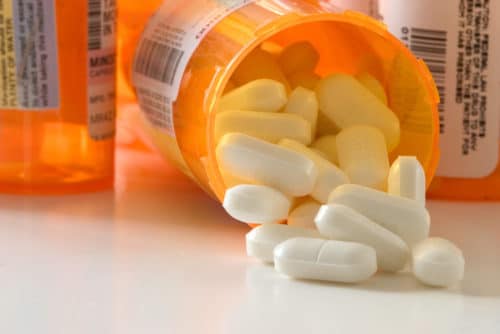Poorly-designed or defective drugs can cause serious injury. Here is what you need to know about what you can do if the medicine that was supposed to help hurt you instead.
 In the United States, we have top-notch medical care and access to countless living-saving or improving drugs. If you have a medical condition, your doctor may prescribe one of these medications for you. In most cases, these drugs are safe and effective and can help you feel better or maybe even cure your illness. But sometimes, these medications do more harm than good. In those situations, you may have a claim against the drug’s manufacturer for your injuries.
In the United States, we have top-notch medical care and access to countless living-saving or improving drugs. If you have a medical condition, your doctor may prescribe one of these medications for you. In most cases, these drugs are safe and effective and can help you feel better or maybe even cure your illness. But sometimes, these medications do more harm than good. In those situations, you may have a claim against the drug’s manufacturer for your injuries.
What Is A Defective Drug?
A defective drug can be any type of medication, either prescription or over-the-counter, that causes physical, mental or emotional injuries. The drug may be defective because it was improperly manufactured (defect in the drug itself), because it was not labeled correctly, or because the drug did not come with sufficient warnings.
Injuries from defective drugs are wide-ranging based on the type of medicine involved. It may include birth defects, damage to organs such as the heart, liver, or kidneys, or a psychological injury such as depression.
When Is A Company Responsible For a Defective Drug?
One of the most difficult aspects of a defective drugs case is proving that the medication itself is what caused the illness or injury. Sometimes, the Federal Drug Administration (FDA), the agency tasked with overseeing the safety all of the medications on the market in the United States, will issue warnings about a particular drug’s side effects or potential adverse reactions to the drug. In other cases, other patients will have had similar injuries from using the drug, demonstrating a pattern that may be used to show that it was the drug that caused the injury. In many cases, it is up to the injured person to prove that it was the medication that led to the illness or injury. A skilled defective drugs attorney can gather evidence and hire expert witnesses to show that it was the drug that caused the injury.
How Could Drugs Be Defective?
To sue a pharmaceutical company for injuries caused by a medication, you must first have a theory regarding how the drug hurt you. There are three main ways in which a drug can be defective and a company can be held liable: failure to warn, manufacturing defects, and defective design.
Failure to warn occurs when a manufacturer does not warn consumers of a danger associated with a medication. If a drug company does a study and learns that some patients experience heart damage when taking a medication for an extended period of time, but does not disclose that danger, then the company may be liable for failure to warn.
Manufacturing defects occur when, for whatever reason, a particular drug is not manufactured in accordance with the specifications for the medication. This could happen in any number of ways, from faulty equipment to using bad ingredients or even failing to test a batch to ensure it meets the company’s quality standards. If a company does not manufacture a drug properly, it may be held responsible for a manufacturing defect.
A design defect happens when there is some type of flaw in the design of the medication that makes it unreasonably dangerous to consumers. This could occur in a number of ways—maybe a medication causes harm to a patient’s esophagus if not properly coated, but the manufacturer chooses a coating that disintegrates in saliva. In that case, the drug company may be liable for the design defect.
If you believe that you have been injured as the result of a defective or dangerous drug, immediately seek medical attention. Your doctor will be able to advise you of the best way to stop taking the medication and may be able to treat the injuries you have suffered. After talking to a doctor, contact a skilled defective drugs attorney to assess your case and determine if you have a potential claim against the manufacturer of the medication. Contact the Law Offices of Larry H. Parker today at 800-333-0000 or info@larryhparker.com for a free consultation on your defective drugs case. Initial consultations are always free, and we never charge a fee unless we are able to recover money for you.



